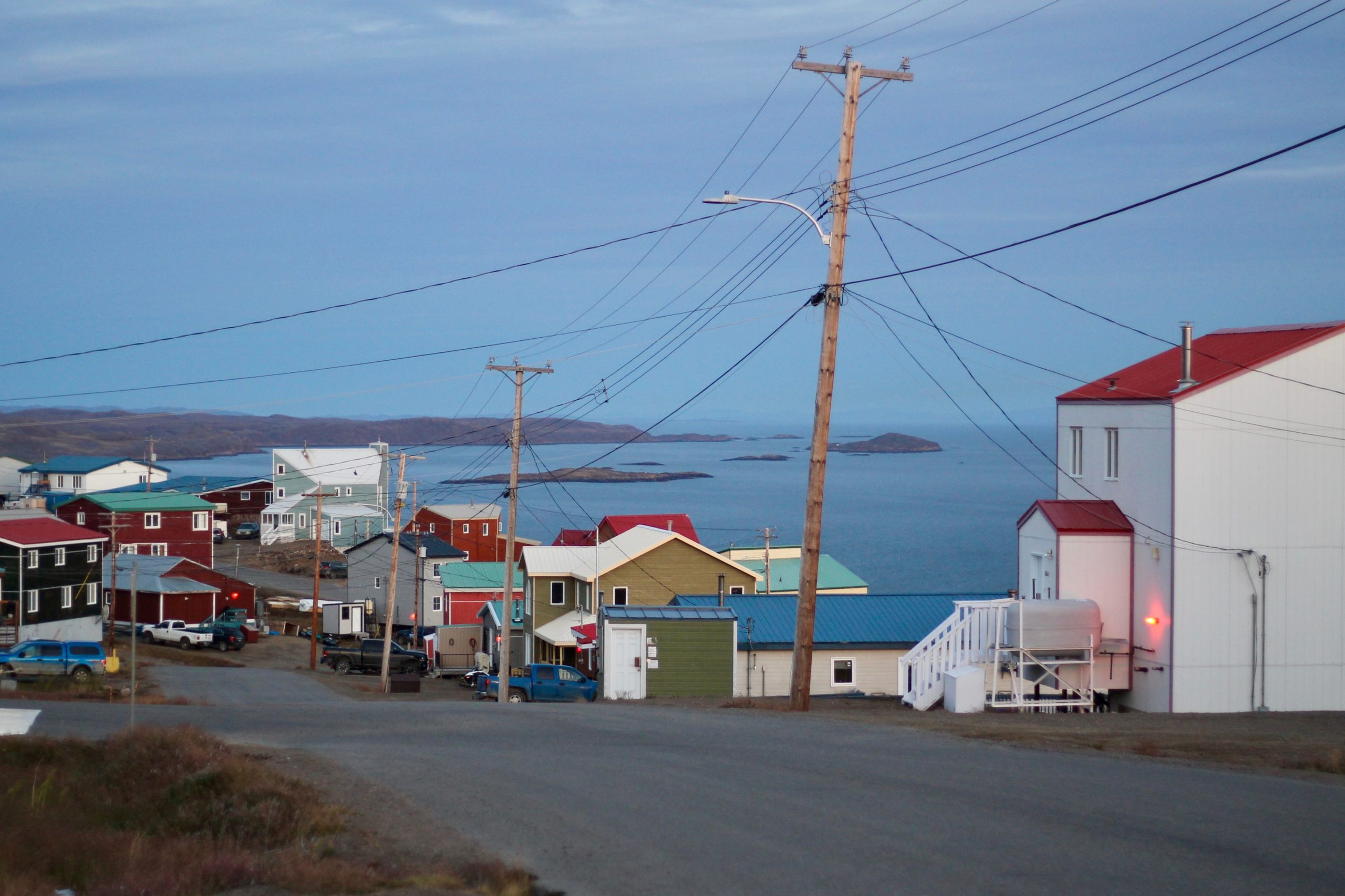
5 things to know about Winnipeg’s big sewage problem
115 billion litres, 70 years to fix, $5.5 billion in lawsuits
Get the inside scoop on The Narwhal’s environment and climate reporting by signing up for our free newsletter.
Young and distinguished Indigenous leaders, representing almost every region of Canada, were summoned to Inuit territory last week, where the warming Arctic threatens the Inuit way of life.
It’s also where a key to transforming the future might exist.
Participants — flying through misty clouds at high altitudes from Ottawa over northern Quebec and the Hudson Strait — held excited and nervous expressions on their faces before landing in the mossy and rocky city of Iqaluit.
The 7,400-strong capital city of Nunavut sits along the shore of Frobisher Bay on treeless Baffin Island.
The youth were welcomed to the north for the 2024 energy summit hosted by SevenGen — an Indigenous youth-led and focused organization that specializes in creating pathways for clean energy and climate advocacy. The organization pulled off what many participants called a “once-in-a-lifetime” opportunity to gather in the North, in partnership with Crown-Indigenous Relations and Northern Affairs Canada and Natural Resources Canada.
The three-day conference featured workshops, panels and field trips centered on clean energy, food sovereignty, water and industry collaboration. Participants were greeted by the warmth of Inuk elder Monica Ell-Kanayuk as she lit a qulliq — a traditional seal-oil lamp carved from soapstone that kept Inuit warm for a millennia in cold and dark winters.
Delegates listened in on Inuktitut-to-English translators as Ell-Kanayuk spoke of the traditional Inuit way of life, focusing on survival and language, setting the tone for the gathering. She was joined by Iqaluit Mayor Solomon Awa, who expressed his gratitude to see so many youth make their ways into his community.
SevenGen co-chair and Indigenous energy trailblazer Mihskakwan James Harper, from the Sturgeon Lake Cree Nation in Alberta, looked exhausted but maintained a steady smile and chipper tone as he explained that planning the summit was not an easy feat.
“It shows us there is nothing that we cannot overcome,” the 29-year-old mechanical engineer said, standing alongside Serena Mendizabal, the other SevenGen co-chair, from Six Nations of the Grand River.
“In order to have clean energy, we need good energy,” Harper told a room filled with young and hopeful Indigenous peoples, cheering on his opening remarks.
“Folk here in the North are contributing the least to [greenhouse gas emissions], but are facing the most impacts from the global south,” Harper said, noting why it’s important the event is held in Iqaluit. The Arctic is warming four times faster than the global average.
Multiple keynote speakers and panelists noted how building family and utilizing Indigenous teachings can be an effective model to create solidarity toward transitioning to clean energy and fighting the climate crisis.

Natalie Noksana, an Inuvaluit delegate from Tuktoyaktuk, NWT, participated in a panel discussion focusing on water. She shared of pushing boundaries in her community by becoming the first female whale harvester — a role that has traditionally been exclusive to men — and creating a documentary about it.
“I believe we need more recognition in the North,” she said to The Narwhal. “Colonization has taken over, and I believe as Inuvialuit, we have a strong voice that needs to be heard.” She is leaving the conference feeling energized to encourage people to come together by hunting, harvesting and incorporating more traditional activities into her community.
A transition to renewable energy will create jobs and preserve culture for the future of the North, said Iqaluit-Manirajak MLA Adam Arreak Lightstone, in a short keynote speech on the second day that emphasized the urgency of collaboration.
Lightstone said Nunavut is currently almost entirely reliant on diesel fuel and that it’s becoming “increasingly unsustainable.” But he also said the territorial government is committed to partnerships and urged that northern communities must continue to find funding for clean energy projects.

“We need support and resources grounded in Inuit values,” Lightstone said in closing his speech, acknowledging the work already being done within Nunavut. “We must inspire the next generation and encourage young people into environmental-based jobs.”
Danii Kehler of Kawacatoose First Nation in Saskatchewan, who previously served as manager of SevenGen for two years, said she helped plant a seed with the organization council to bring the gathering to the North because it is “facing climate change in real time,” and its people are often excluded from important discussions and opportunities. She said a typical, mainstream energy conference almost exclusively focuses on “networking,” highlighting what makes SevenGen different.
“It’s more than just a conference and making friends,” she said. “It’s family and you can feel the love.”
Gwichʼin participant, Andrea Jerome, from Inuvik, NWT, said the North is in need of more Indigenous-led green energy projects, which she said she’d never heard much about in her community.
“I learned a lot about all the different projects in different regions in Canada at SevenGen,” Jerome said, as she awaited the doors to open for the closing ceremony. “There’s so much more Inuit groups that could come together to make a difference in this world.”
Iqaluit resident and participant, Kaaju Arreak, a 20-year-old environmental technology student at Nunavut Arctic College came to the conference as part of a class assignment. He was excited to hear friends from Calgary would also be attending.
“Showing another part of Canada, and getting to know the people of the North is really important,” Arreak said.
Get the inside scoop on The Narwhal’s environment and climate reporting by signing up for our free newsletter. On a warm September evening nearly 15...
Continue reading
115 billion litres, 70 years to fix, $5.5 billion in lawsuits

Climate change, geopolitics and business opportunities power a blue economy

10 billion litres of sewage are dumped into Winnipeg’s lakes and rivers each year. Some...
